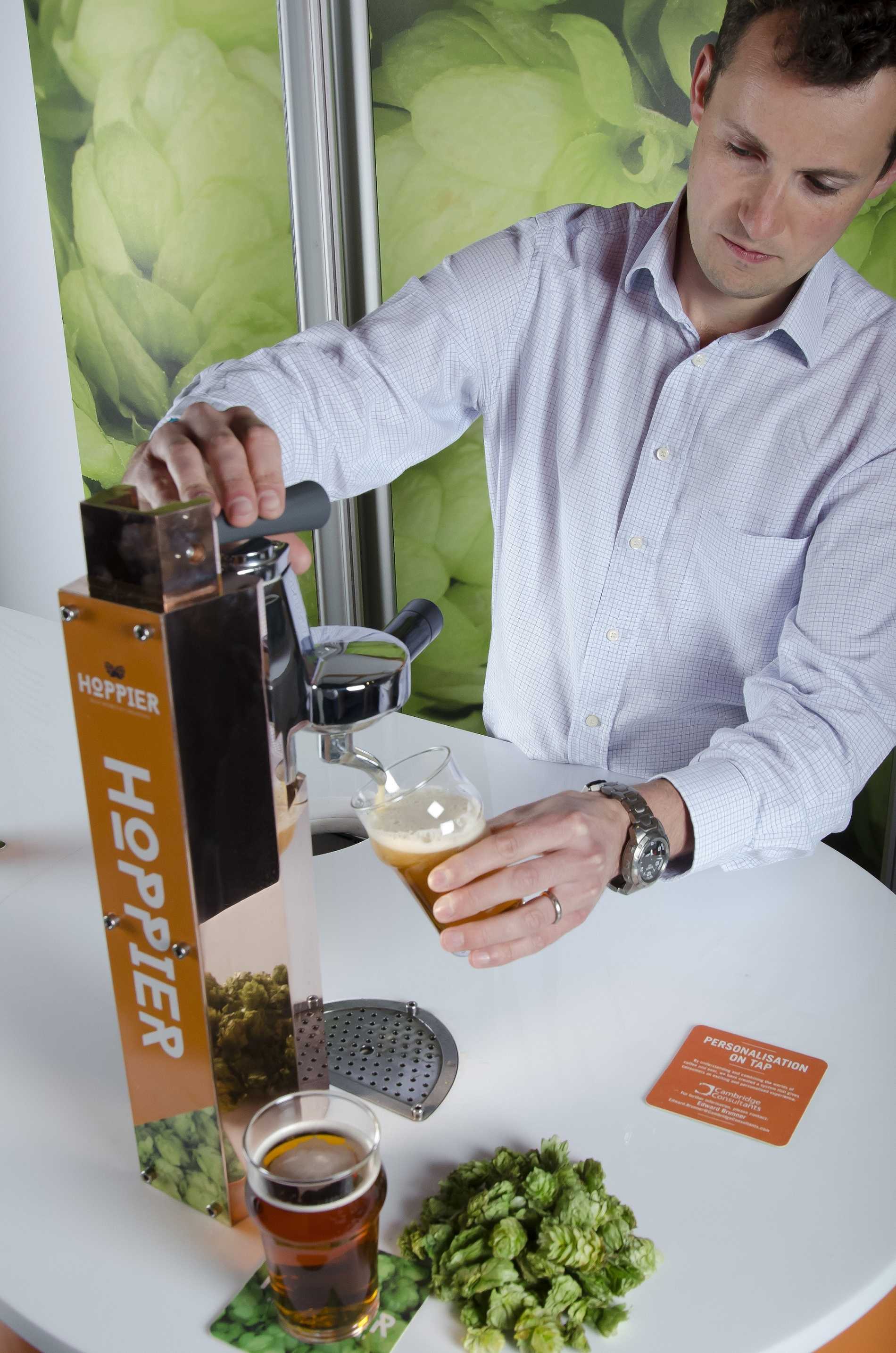Beer is getting a taste of innovation from product design and development firm Cambridge Consultants.
In keeping with the strong personalisation trend in the consumer industry, the company has come up with a barista-type experience for beer drinkers – with the barman adjusting the ‘hoppiness’ level of each pint on demand. It also opens up the possibility of introducing new flavours into beer.
Recent years have seen a big rise in the number of speciality beers available in Europe – and huge growth in the craft beer scene in the US. Cambridge Consultants has now taken things one step further, using its science-led approach to innovation.
The brewing and dry-hopping process that normally takes up to two weeks has been transformed to enable the consumer to change their beer flavour in seconds.
“Essentially, we’re making an ‘espresso’ of beer,” said Edward Brunner, head of food and beverage systems at Cambridge Consultants.
“We’ve taken our expertise in fluid technology and beverage systems, and transferred that knowledge between different industries – using some of the secrets of successful coffee machines to enable us to create personalised beer that is fresh and natural.
“We knew, for example, that pressure is fundamental to extracting flavour in espresso machines – so part of our investigation was to see whether it does anything for beer.
As a result, we have speeded up the dry-hopping process – and, by adding extra hops at the point of dispense, their volatile aromas are as fresh and intense as possible.
Additionally, the aroma of the finished pint can be adjusted by increasing or decreasing the quantity of hops and by changing the type of hops used.”
The technology developed by Cambridge Consultants could be retro-fitted to beer fonts in a bar – with the barman adjusting the quantity of hops according to each customer’s taste. The technology could also be used to introduce new flavours into beer – such as spice or fruit.
“This gives brands a unique opportunity to differentiate themselves in what is a very competitive marketplace,” said Brunner. “It’s a way of building on the current trend of personalisation to create new experiences and add value for the consumer.
“This is the latest example of our ‘science-led innovation’ approach, which combines our well-proven innovation process with technical understanding of a problem to ensure the radical concepts generated have the highest chance of technical success.”


















